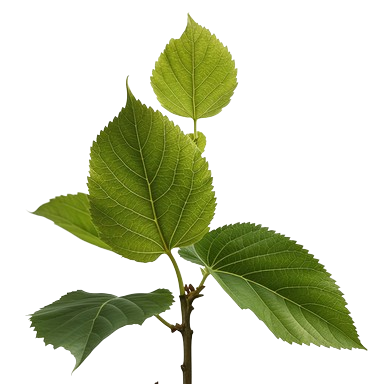May 30, 2024
Mulberry leaf

Mulberry contains various physiological active substances such as mulberry leaf flavonoids, mulberry leaf polyphenols, mulberry leaf polysaccharides, DNJ, GABA, etc. Its main functions include:
- To inhibit the activity of disaccharide degrading enzymes through the alkaloid DNJ (1-deoxynojirimycin), thereby inhibiting the absorption of disaccharides in the small intestine and reducing the peak value of postprandial blood sugar (Kimura, 1995);
- It is promoted through the use of mulberry leaf alkaloids fagomine and mulberry leaf polysaccharides β Cells secrete insulin, which can promote cell utilization of sugar, liver glycogen synthesis, and improve glucose metabolism, ultimately achieving the effect of lowering blood sugar;
- It is used for dispersing wind heat, clearing the lungs and moistening dryness, clearing the liver and brightening the eyes;
- It can prevent and cure cardiovascular and cerebrovascular diseases, hyperlipidemia, diabetes, obesity and anti-aging.
